Letters of John Calvin
| Weight | .8 lbs |
|---|---|
| Dimensions | 7.5 × 5 × 1.25 in |
| ISBN | 9781848718432 |
| Binding | Cloth-bound, eBook (ePub & Kindle), Cloth-bound & eBook (ePub & Kindle) |
| Topic | Church Life, General Theology, Life Issues |
| Original Pub Date | 1855 |
| Banner Pub Date | Nov 27, 2018 |
| Page Count | 320 |
| Format | Book |
Endorsement
‘[Letters of John Calvin] is one of my favourite books. My copy is highlighted, underlined, and falling apart from constant use. Students of Calvin, as well as pastors and serious Christians, will enjoy these letters. I’m thrilled that Banner of Truth has reissued this classic.’ — KEVIN DEYOUNG
Book Description
Few great Christian leaders have suffered quite so much misunderstanding as John Calvin. He is often dismissed as a theologian without humanity. In fact the very reverse is much nearer the truth, as these letters amply demonstrate. He was a man of deep and lasting affection, passionately concerned for the cause of Christ in the world—a man who burned himself out for the gospel.
Calvin wrote to kings and princes, Reformers and friends, nobility and common people alike. The Letters of John Calvin reveal a man of deep pastoral concern, consistent and exemplary evangelistic zeal, with a humble sense of the final authority of God and his word. This selection contains a number of letters written in connection with the establishment of the Reformation in England; a cross-section of Calvin’s correspondence with his closest friends, especially William Farel, and also Luther and Melanchthon. There are also letters of pastoral counsel and encouragement, and perhaps most moving of all, Calvin’s exhortations to five young men imprisoned in Lyons, France, awaiting the day of their certain martyrdom.
This selection of seventy letters is taken from the collection edited by Jules Bonnet, first published in 1855–57, with an introductory biographical sketch.
Videos
Table of Contents Expand ↓
| Introduction | xiii | |
| The Life of Calvin | xv | |
| LETTERS OF CALVIN | 3 | |
| 1. TO NICOLAS DUCHEMIN | 3 | |
| Calvin at the University of Orleans – his early friendships – he is recalled to Noyon by the illness of his father. | ||
| 2. TO FRANCIS DANIEL | 5 | |
| Calvin’s first work – Commentary on Seneca’s Treatise De Clementia | ||
| 3. TO CHRISTOPHER LIBERTET | 6 | |
| Calvin in Basle – revision of the Bible of Robert Olivetan – treatise on the Immortality of the Soul. | ||
| 4. TO FRANCIS DANIEL | 9 | |
| Calvin in Geneva – translation into French of the Institutes – disputation of Lausanne – establishment of the doctrines of the Reformation in the Pays de Vaud. | ||
| 5. TO LOUIS DU TILLET | 13 | |
| Departure of Louis du Tillet from Geneva – regret of Calvin – controversy between the two friends regarding the character of the Church of Jesus Christ. | ||
| 6. TO HENRY BULLINGER | 20 | |
| State of the Church at Geneva – wish for the union of the Reformed Churches – mention of Luther. | ||
| 7. TO WILLIAM FAREL | 23 | |
| Farel called as minister to the Church of Neuchâtel – sad condition of the Church at Geneva – uncertainty of Calvin – Bucer’s urgency to draw him to Strassburg. | ||
| 8. TO FAREL | 28 | |
| Death of Courault – Calvin’s discouragement and trust in God – answers a question of Saunier regarding the Supper – the faithful at Geneva exhorted not to separate from the new preachers – affectionate advice given to Farel. | ||
| 9. TO FAREL | 34 | |
| Second edition of the Institutes – death of Robert Olivetan – state of religion in Germany – first lectures of Calvin at Strassburg. | ||
| 10. TO FAREL | 37 | |
| Impressions of Calvin on his recall to Geneva – rigorous application of discipline in his church – news of Germany, of France, and of England. | ||
| 11. TO PETER VIRET | 41 | |
| Excuses for his silence – sad news from France – repugnance of Calvin to return to Geneva – his comparative estimate of Capito, Zwingli, Luther and Œcolampadius. | ||
| 12. TO FAREL | 44 | |
| Prepares to depart for Geneva – self-denial of Calvin – absolute submission to the will of God. | ||
| 13. TO FAREL | 47 | |
| Details of the death of the first Syndic, Amy Porral. | ||
| 14. TO LUTHER | 52 | |
| Calvin submits to Luther several of his writings of which he desires to obtain his approval | ||
| 15. TO MELANCHTHON | 55 | |
| He complains of Luther’s tyranny, and affectionately exhorts Melanchthon to manifest greater decision and firmness. | ||
| 16. TO MONSIEUR DE FALAIS | 58 | |
| Exhortation to glorify God amid poverty and persecution. | ||
| 17. TO JOHN FRELLON | 61 | |
| Rupture of the relations between Calvin and Servetus. | ||
| 18. TO FAREL | 63 | |
| Reply to various questions – threat against Servetus – imprisonment of one of the leaders of the Libertines. | ||
| 19. TO VIRET | 67 | |
| Calvin invites his friend to Geneva after the death of his wife. | ||
| 20. TO FAREL | 68 | |
| False report of Calvin’s death – proposition (query) by the wife of Amy Perrin – calumnious accusation against Idelette de Bure – journey of Farel to Geneva | ||
| 21. TO THE PROTECTOR SOMERSET | 71 | |
| Duties imposed on the Protector by the high office which he holds – plan of a complete reformation in England – preaching of the pure Word of God – rooting out of abuses – correction of vices and scandalous offences. | ||
| 22. TO VIRET | 92 | |
| Death of Idelette de Bure, the wife of Calvin | ||
| 23. TO FAREL | 94 | |
| Further details regarding the death of Idelette de Bure. | ||
| 24. TO MADAME DE CANY | 96 | |
| Account of the instructive death of Madame Laurent de Normandie. | ||
| 25. TO THE PROTECTOR SOMERSET | 102 | |
| Congratulations on the royal favour shown to the Duke of Somerset – use to be made of his influence for spreading the Gospel in England. | ||
| 26. TO WILLIAM RABOT | 107 | |
| Exhortation to the study of the Scriptures. | ||
| 27. TO THE KING OF ENGLAND | 109 | |
| He exhorts him to persevere in the work of the Reformation in his kingdom – enumeration of abuses, ceremonies, ecclesiastical elections – universities. | ||
| 28. TO A FRENCH GENTLEMAN | 115 | |
| Sickness of Theodore Beza – Calvin’s grief. | ||
| 29. TO THE DUKE OF SOMERSET | 116 | |
| Protestations of attachment – reforms required in the Church of England – squandering of the revenues of benefices and of the universities. | ||
| 30. TO LAELIUS SOCINUS | 119 | |
| Refusal to reply to the questions proposed to him by Socinus. | ||
| 31. TO CRANMER | 122 | |
| Agreement to the proposal for assembling a General Synod for the more close union of the Reformed Churches. | ||
| 32. TO THE FIVE PRISONERS OF LYONS | 127 | |
| Martial Alba, Peter Escrivain, Charles Favre, Peter Navihères, Bernard Seguin – Information on various doctrinal points, and assurances of Christian sympathy. | ||
| 33. TO EDWARD VI | 132 | |
| Dedication of a new work, and Christian exhortations. | ||
| 34. TO CRANMER | 134 | |
| Calvin exhorts him to prosecute with fresh zeal the reformation of the Church in England, by purging it of the relics of Popery. | ||
| 35. TO THE FIVE PRISONERS OF LYONS | 137 | |
| Exhortations to constancy – mention of Ortiz the Inquisitor. | ||
| 36. TO EDWARD VI | 140 | |
| Recommendation of a French gentleman, a prisoner for the sake of the Gospel. | ||
| 37. TO CRANMER | 142 | |
| He entreats his influence in favour of the person already recommended to the King. | ||
| 38. TO THE FIVE PRISONERS OF LYONS | 144 | |
| He exhorts them to steadfastness to the end, in the assurance of eternal joy reserved in heaven. | ||
| 39. TO THE PRISONERS OF LYONS | 149 | |
| He impresses on them the duty of maintaining their confession of the truth quietly and modestly. | ||
| 40. TO BULLINGER | 153 | |
| Expression of regret for the death of the King of England – sad condition of the German Churches. | ||
| 41. TO FAREL | 155 | |
| Arrest of Servetus, and institution of the process against him. | ||
| 42. TO MELANCHTHON | 158 | |
| He deplores the silence of Melanchthon, and urges him to apply himself to the controverted questions of Election and the Lord’s Supper. | ||
| 43. TO THE ENGLISH AT FRANKFORT | 162 | |
| He exhorts them to make in their liturgy all the changes compatible with the maintenance of union and the peace of their Church. | ||
| 44. TO THE DUCHESS OF FERRARA | 165 | |
| He exhorts her to make a courageous display of her faith under persecution. | ||
| 45. TO MELANCHTHON | 168 | |
| Thanks him for his approval of the condemnation of Servetus – urgent entreaties to determine Melanchthon to pronounce with more firmness in the question of the sacraments. | ||
| 46. TO BULLINGER | 171 | |
| Defeat of the party of the Libertines at Geneva – answer of the Swiss churches to the defence of the Consensus. | ||
| 47. TO JOHN KNOX | 174 | |
| Criticism of the Anglican Liturgy – counsels addressed to the parties which divide the foreign Church of Frankfort. | ||
| 48. TO BULLINGER | 177 | |
| Account of the nocturnal riot excited by the Libertines at Geneva – defeat and total dispersion of that party. | ||
| 49. TO PETER MARTYR | 191 | |
| Fall of the French Church of Strasbourg – grief of Calvin | ||
| 50. TO RICHARD VAUVILLE | 192 | |
| Christian consolations on the occasion of his wife’s death. | ||
| 51. TO THE KING OF POLAND | 194 | |
| He exhorts him to undertake courageously the reform of his states, in proposing to him the example of David, Hezekiah, and Josiah. | ||
| 52. TO FAREL | 198 | |
| Complaints about the bad proceedings of the Seigneurs of Berne – domestic griefs | ||
| 53. TO MONSIEUR D’ANDELOT | 200 | |
| He blames him for his weakness – and exhorts him to repair the scandal caused by his fall. | ||
| 54. TO THE EARL OF ARRAN | 205 | |
| Eulogiums on his attachment to the gospel, and on his zeal to spread it. | ||
| 55. TO THE MINISTERS OF NEUCHATEL | 208 | |
| He deplores the marriage of Farel, in recalling to their minds the glorious services which he has rendered to the cause of truth. | ||
| 56. TO FAREL | 211 | |
| He makes an excuse for not being able to be present at the marriage of his friend. | ||
| 57. TO WILLIAM CECIL | 213 | |
| Hopes connected with the accession of Elizabeth – wishes for the establishment of the pure gospel in England. | ||
| 58. TO JEROME ZANCHI | 217 | |
| Call to the ministry in the Church of Geneva. | ||
| 59. TO WILLIAM CECIL | 219 | |
| He exculpates himself to this minister of the imputations brought against him on account of a writing of Knox’s. | ||
| 60. TO JOHN KNOX | 222 | |
| Answers to different ecclesiastical questions. | ||
| 61. TO THE BRETHREN IN FRANCE | 228 | |
| He exhorts them to redouble their faith to meet their redoubled persecutions, and to live and die for the confession of Jesus Christ. | ||
| 62. TO THE BISHOP OF LONDON | 237 | |
| Recommendation of the French Church of London – Eulogium of des Gallars – Wish for a complete Reform of the Anglican Church. | ||
| 63. TO THE KING OF NAVARRE | 241 | |
| He exhorts him to pursue with ardour the restoration of the gospel in France. | ||
| 64. TO THE QUEEN OF NAVARRE | 243 | |
| He congratulates her on her conversion, and lays before her, her principal duties as a Christian princess. | ||
| 65. TO THE ADMIRAL COLIGNY | 246 | |
| Encomiums on the constancy of the Admiral – Recommendation of Geneva. | ||
| 66. TO JOHN KNOX | 249 | |
| Explanations on the subject of a letter – Expression of satisfaction at the progress of the Reformation in Scotland and of sympathy for a domestic affliction. | ||
| 67. TO THE KING OF NAVARRE | 252 | |
| Warning on the subject of the Lutheran intrigues to introduce into France the Confession of Augsburg. | ||
| 68. TO THE PHYSICIANS OF MONTPELLIER | 256 | |
| Medical consultation. | ||
| 69. TO BULLINGER | 258 | |
| Sufferings of Calvin and the inefficacy of the healing art to relieve them – News of France and Germany. | ||
| 70. TO FAREL | 261 | |
| Last adieus. | ||
| LAST DISCOURSES OF CALVIN | ||
| Last Will and Testament of Master John Calvin | 265 | |
| Calvin’s Farewell to the Seigneurs of Geneva | 271 | |
| Calvin’s Farewell to the Ministers of Geneva | 277 |
You may also like…
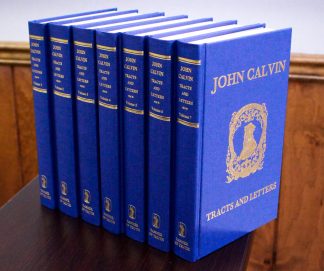
Tracts and Letters of John Calvin
7 Volume Set
Description
Calvin’s Letters reveal a man of deep pastoral concern with a humble sense of the final authority of God and his Word. Clothbound, 320 pages.
More items to consider:
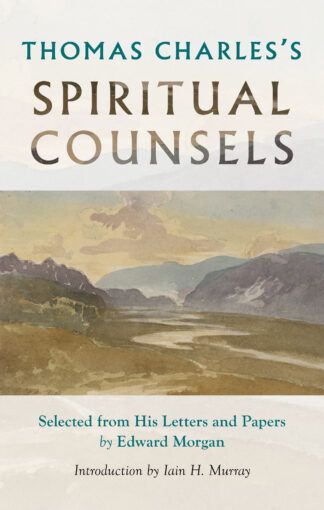
Thomas Charles’ Spiritual Counsels
Selected From His Letters and Papers by Edward Morgan
Description
Calvin’s Letters reveal a man of deep pastoral concern with a humble sense of the final authority of God and his Word. Clothbound, 320 pages.
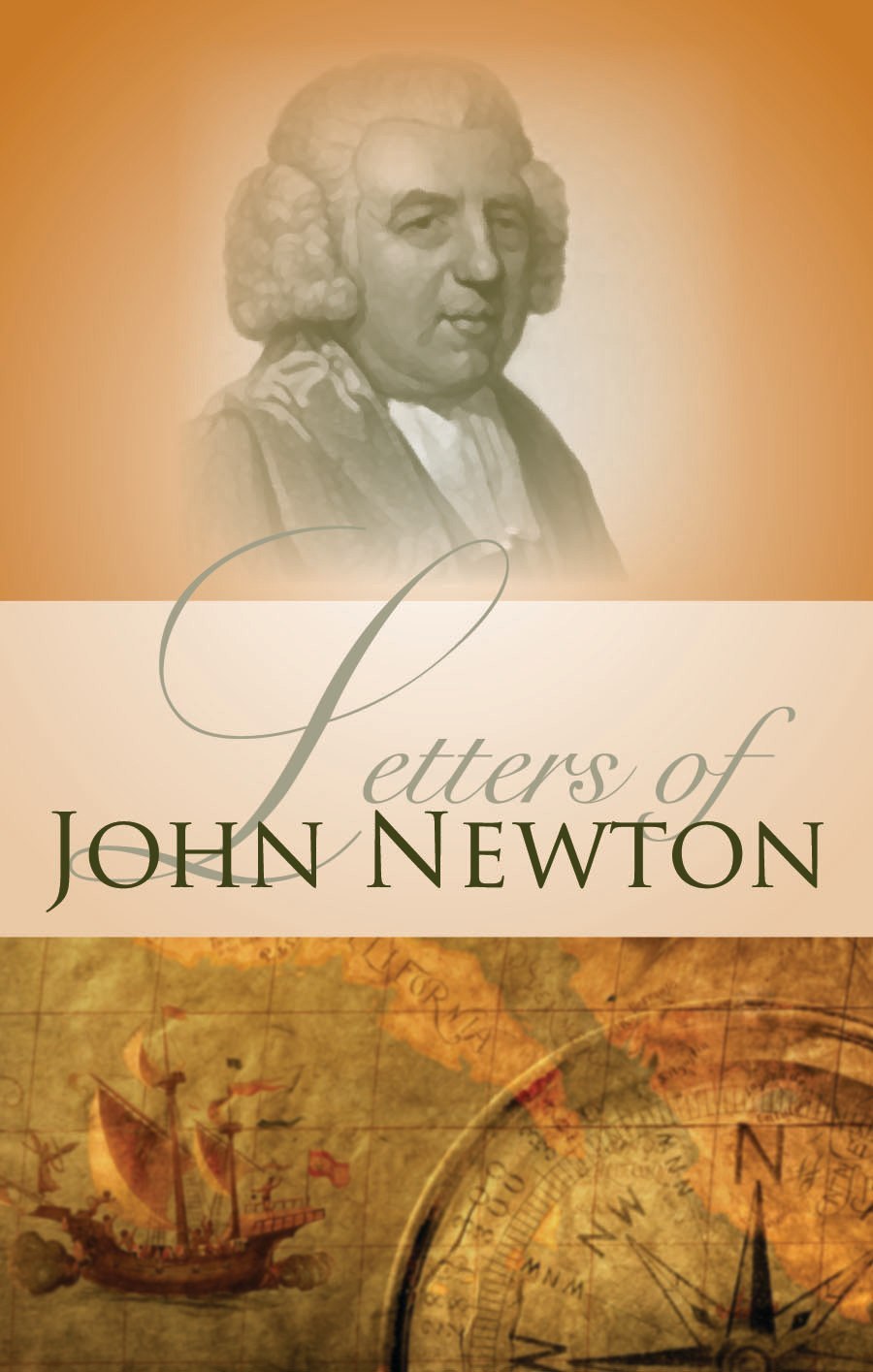
Letters of John Newton
With Biographical Sketches and Notes from Josiah Bull
Description
Calvin’s Letters reveal a man of deep pastoral concern with a humble sense of the final authority of God and his Word. Clothbound, 320 pages.
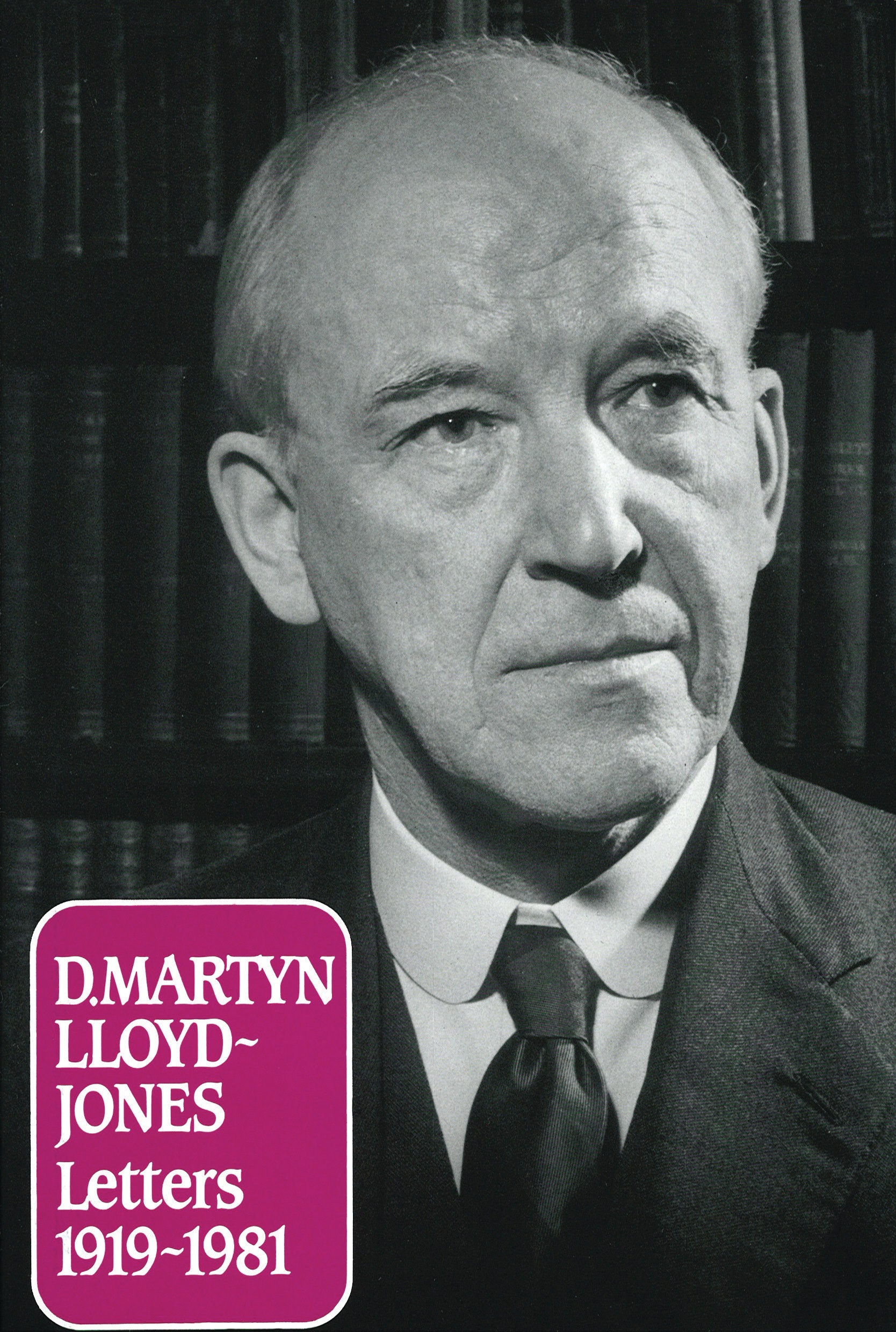
Letters of D Martyn Lloyd-Jones
1919 - 1981
Description
Calvin’s Letters reveal a man of deep pastoral concern with a humble sense of the final authority of God and his Word. Clothbound, 320 pages.

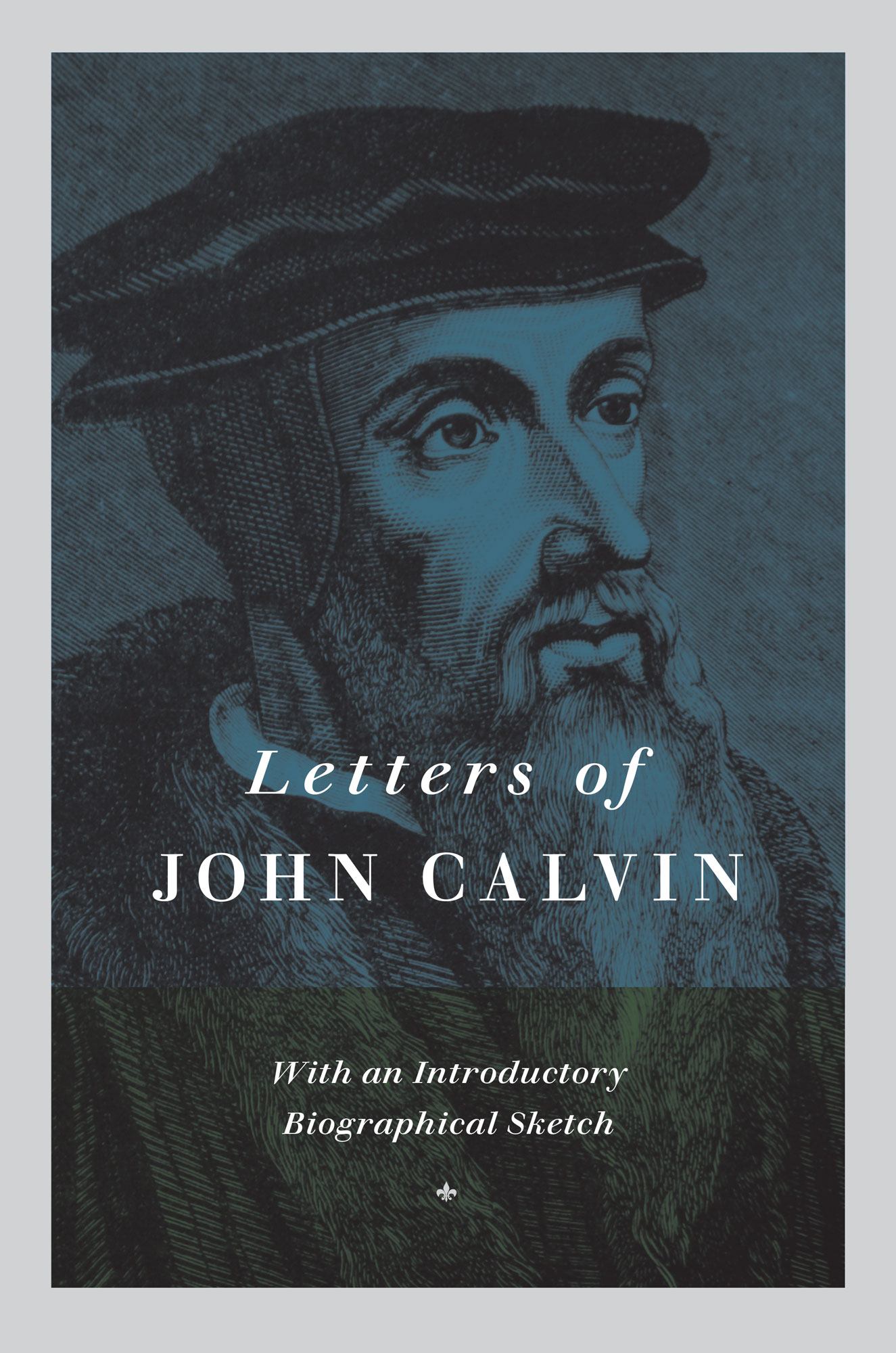
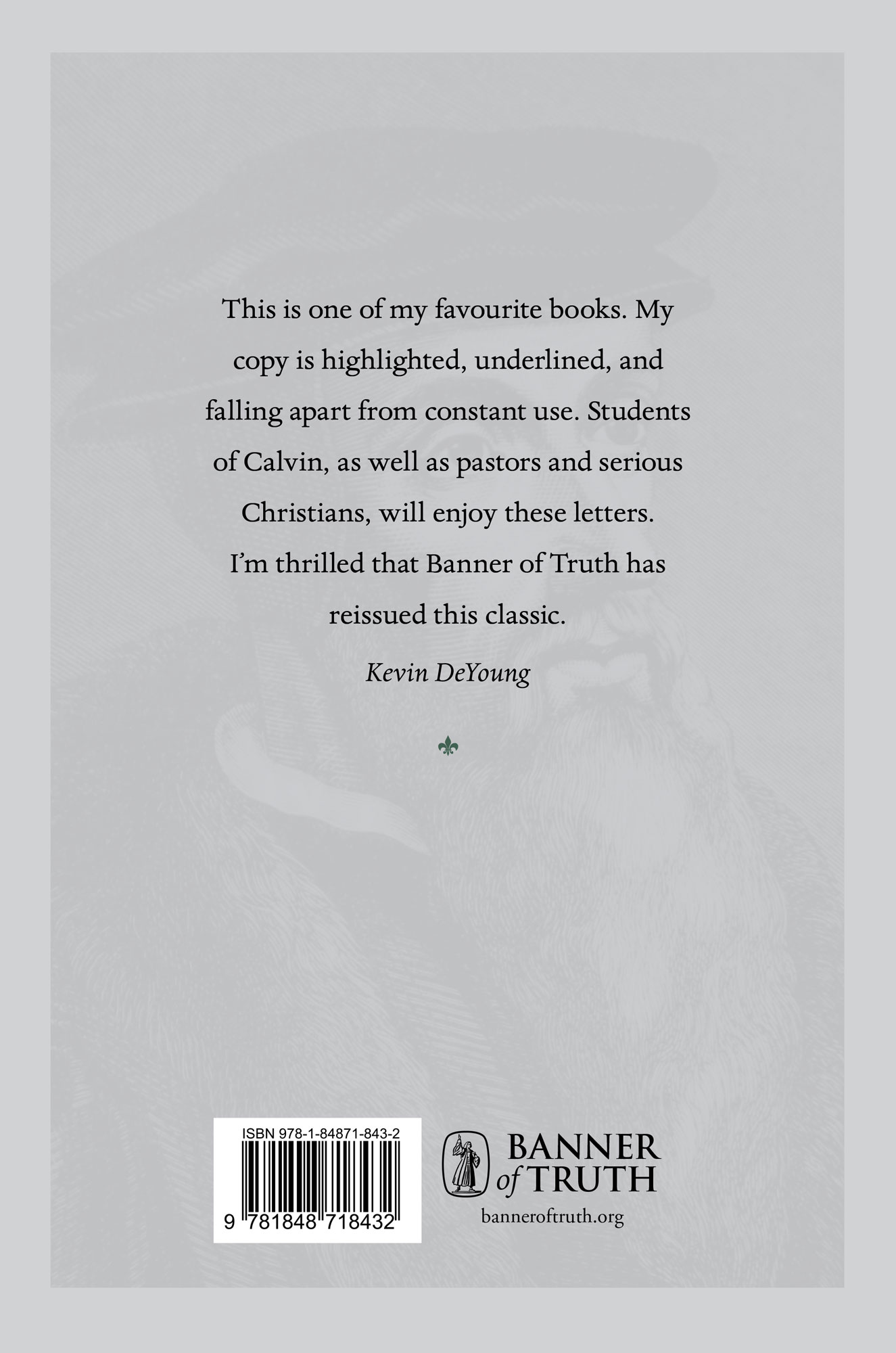
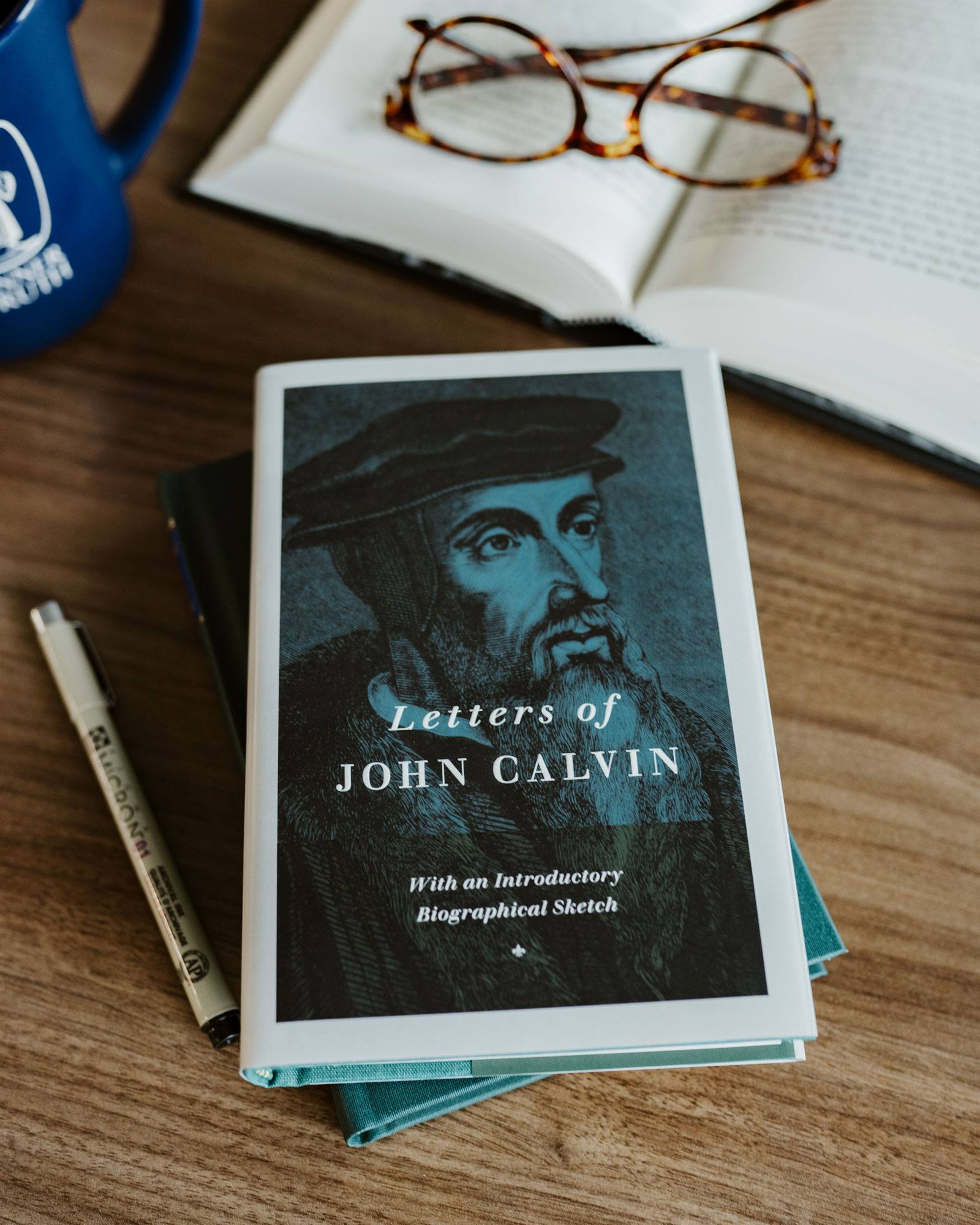

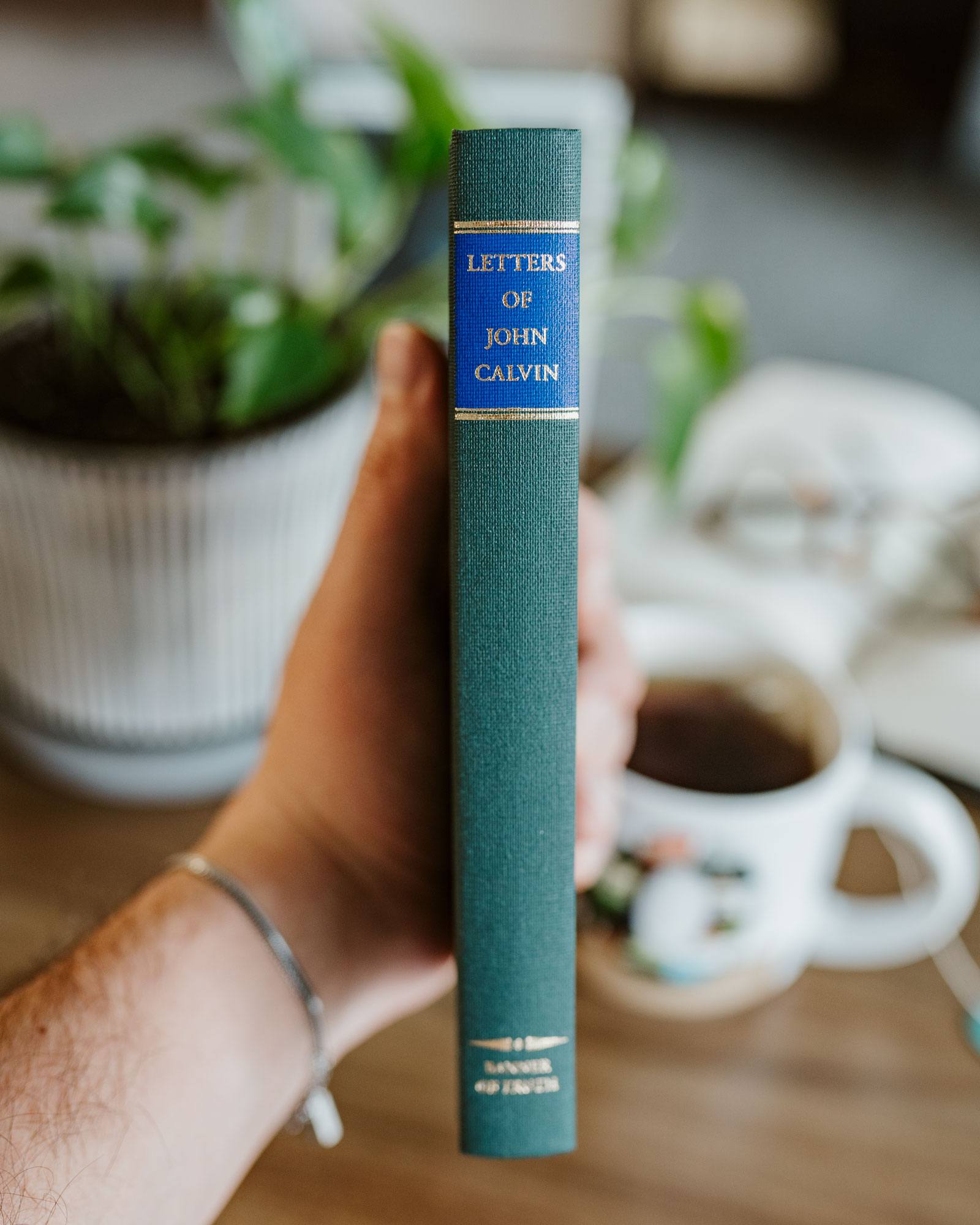

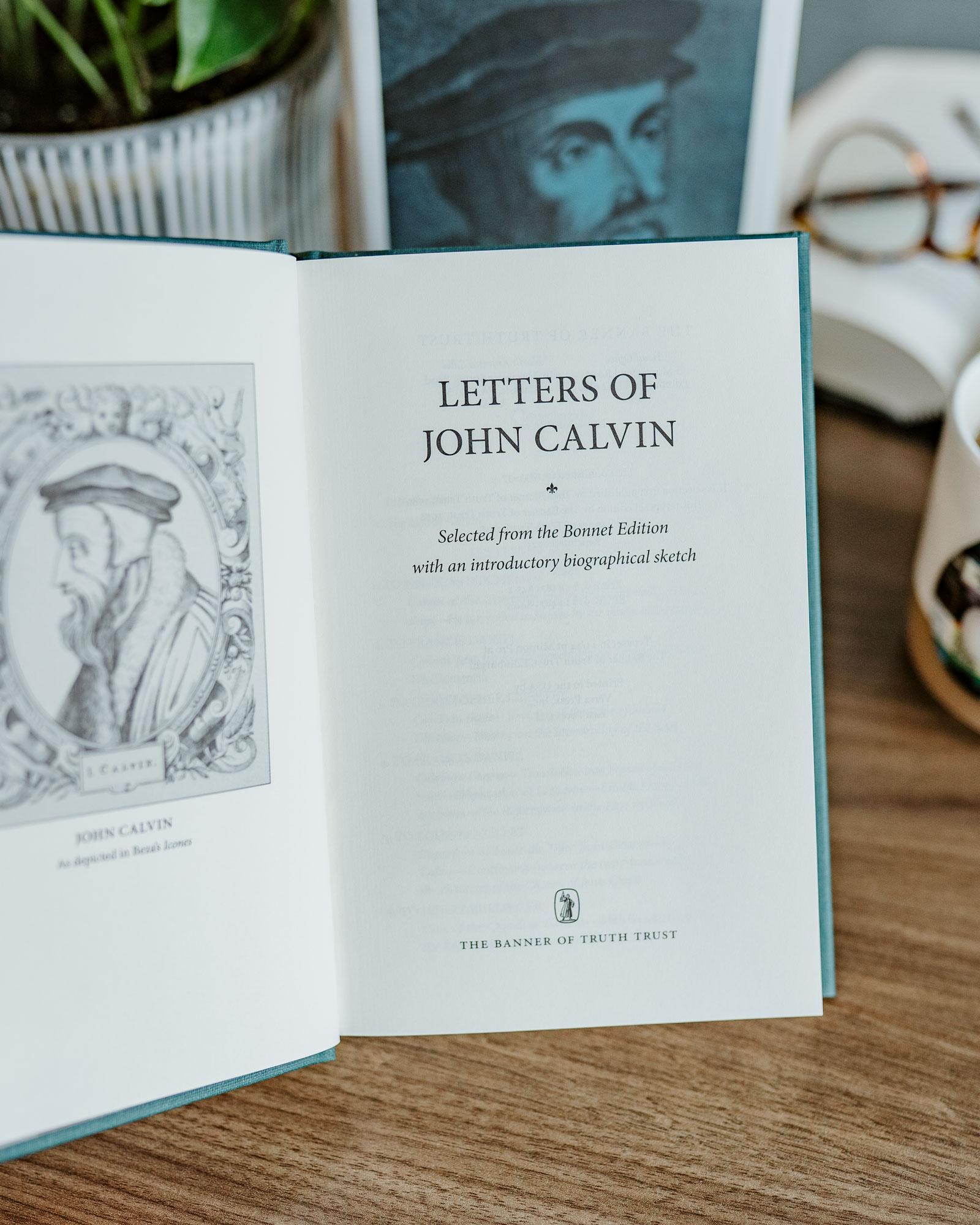
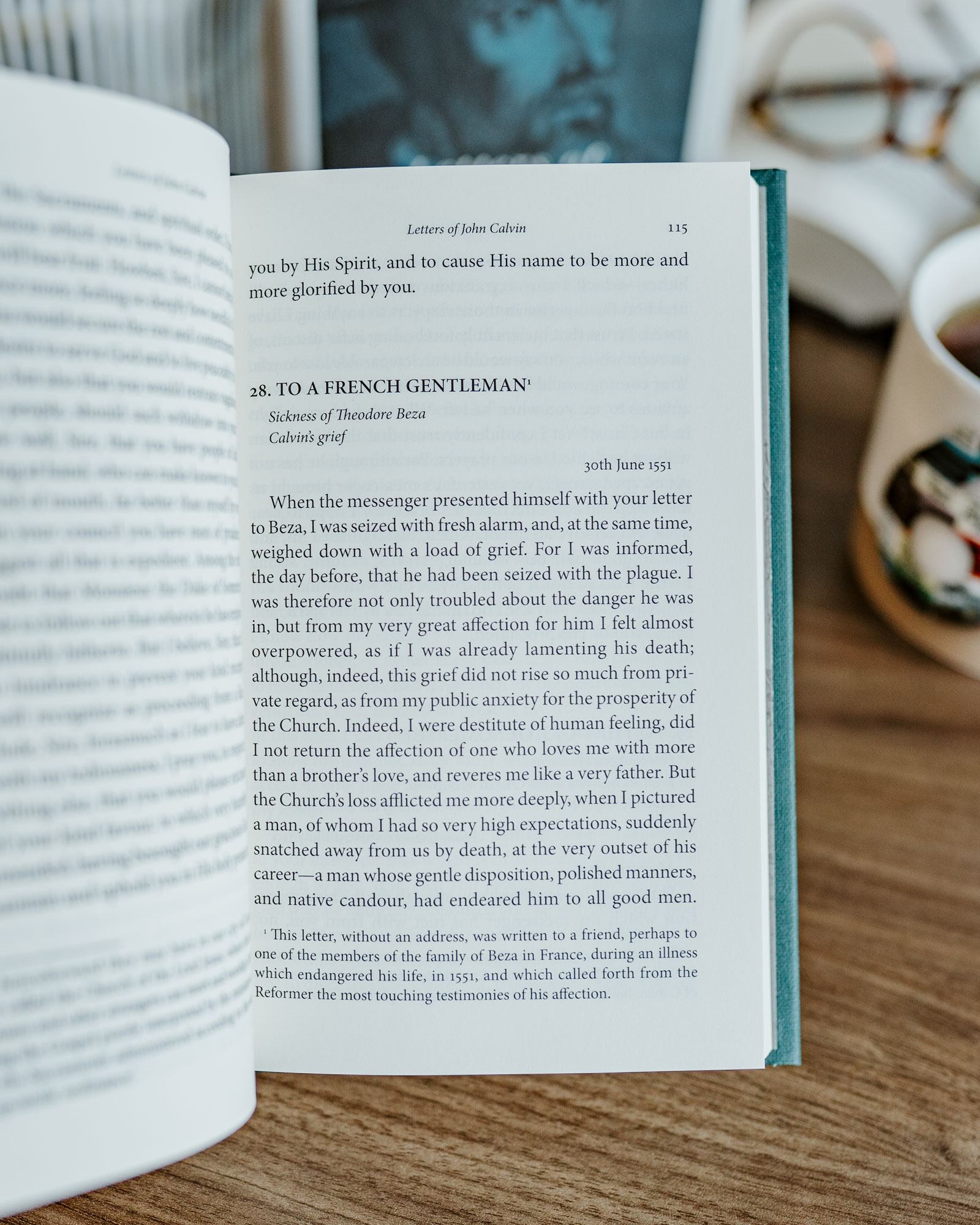
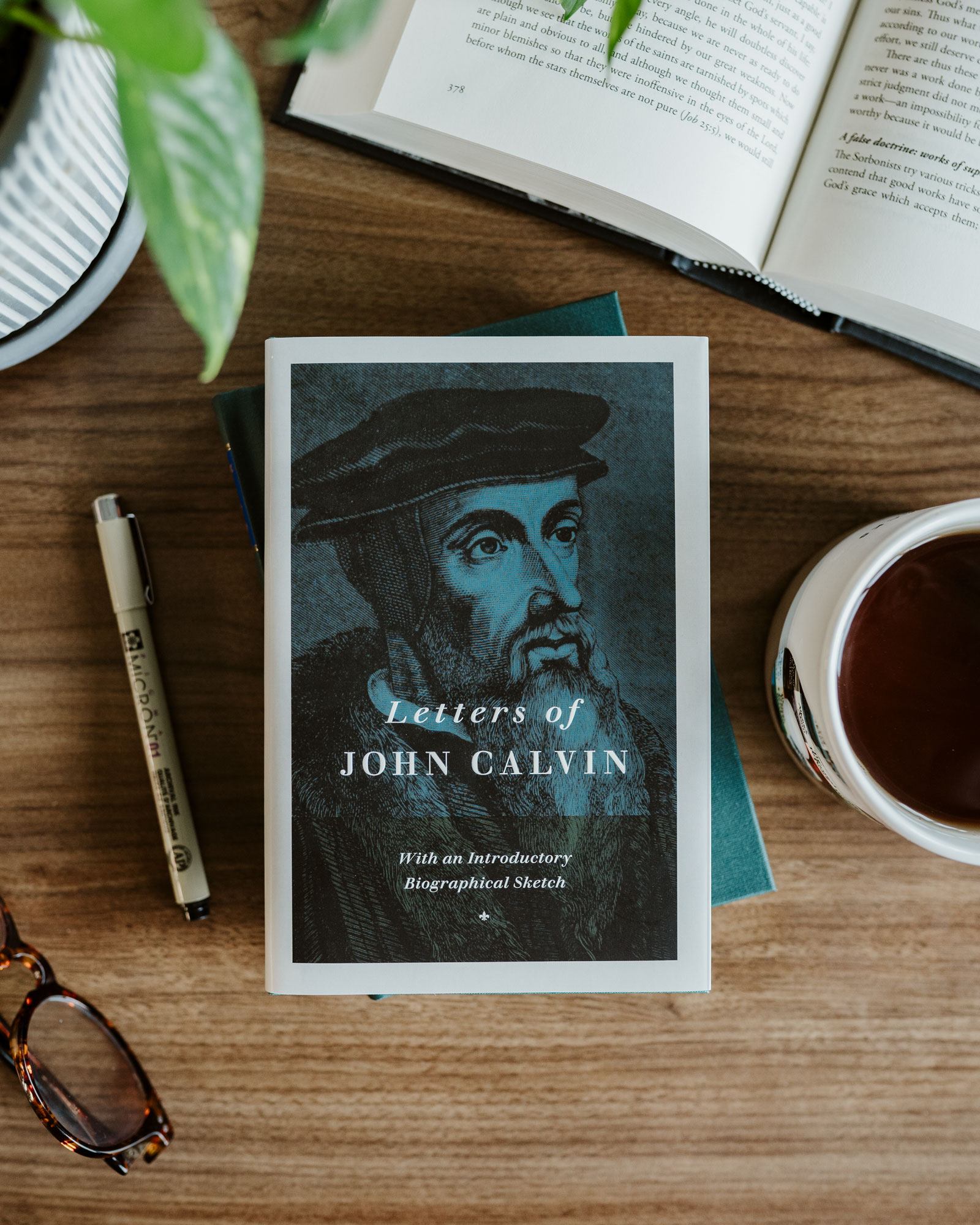
Jacob Wilson –
I’m in love with this edition of Calvin’s letters. The paper is silky smooth, and the typeset is incredibly easy to read. The cover is a nice green cloth-bound cover is one of my favorite covers of any book.
As someone who has never engaged with John Calvin’s letters until now, I’m captivated by the pastoral and empathetic heart that Calvin writes with. While John is known for his robust theology and his epic tomes of Christian thinking, the Letters represent another side of Calvin that is rarely seen. I can tell that this volume will be a mainstay in my library, and one that I reference frequently.
marcdanielrivera –
John Calvin is one of the most influential Reformers whose theological thoughts and writings have shaped Protestantism for generations to come. Yet behind the towering intellect and theological acumen lies a man of profound pastoral concern and unwavering commitment to the gospel. The Letters of John Calvin, published by Banner of Truth, offers readers a glimpse into the heart and mind of this remarkable figure through a collection of his personal correspondence.
This collection of letters by John Calvin contains a wide spectrum of recipients, reflecting his engagement with kings and princes, fellow Reformers, friends, nobility, and common folk alike. Within these pages, readers will encounter a man whose warm pastoral concern is evident in every word, whose passion for God and the gospel burns brightly, and whose life is grounded in the Word of God.
This selection of letters provides a fascinating insight into various aspects of Calvin’s life and ministry. Included are letters written in connection with the establishment of the Reformation in England, offering a rare glimpse into Calvin’s influence on the spread of Protestantism beyond the borders of Geneva. The correspondence with Calvin’s closest friends, particularly William Farel, Luther, and Melanchthon, provides valuable insights into the relationships that shaped his theological thought and ministry.
This selection of seventy letters, drawn from the collection edited by Jules Bonnet and first published in 1855-1857, is accompanied by an introductory biographical sketch that provides context for Calvin’s life and times. The cloth-bound format adds a touch of elegance to this volume, fitting for the treasure contained within.
Within these pages, you’ll witness a dedicated pastor with tender care for the souls under his charge. Between the lines of these letters, you’ll encounter a counselor who offers encouragement in times of trial and uncertainty. In essence, The Letters of John Calvin is a gold mine that reflects the heart and soul of the Genevan reformer. These pages contain the purest practical distillation of the theology and doctrine that Calvin taught. Read these letters, and be enriched and edified!
For those hungering for more, Banner of Truth also offers a larger 7-volume set, the Tracts and Letters of John Calvin, providing a comprehensive collection of Calvin’s writings for further study and reflection.